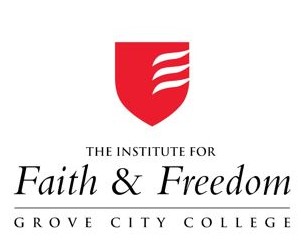Robin Williams, A Sense Of Purpose, And Media’s Religious Blind Spot

The media blind spot toward religion’s role in American life distorted coverage of the Robin Williams suicide even while it slanted reporting on an important new study about health advantages of a personal sense of purpose.
That research, conducted at Carleton University in Ottawa, relied on data from the National Institute on Aging in the United States. More than 6,000 respondents indicated their agreement or disagreement with statements such as, “Some people wander aimlessly through life, but I am not one of them.” After fourteen years, those who indicated a strong sense of direction and purpose reported far better health outcomes and seemed to outlive their less-focused counterparts. The author of the analysis, psychology professor Patrick Hill, indicated that purposeful participants faced a “15 percent lower risk of death” – a difference that persisted even after controlling for age, gender, marital status and other indications of emotional well-being.
The most revealing aspect of the study involved Professor Hill’s definition of a sense of purpose, as reported by National Public Radio. He described that attribute as something like a “compass or lighthouse that provides an overarching aim and direction in day-to-day lives.” NPR went on to paraphrase the psychologist’s insistence that “purpose means different things to different people,” including “working for social change,” “making sure one’s family is happy,” “doing well on the job” or “creativity…whether it’s music, dance or visual arts.”
The story featured one painfully obvious omission in its listing of goals that might serve as “a compass or lighthouse….in day-to-day lives.” Professor Hill made no reference to religious faith, ignoring the fact that a significant percentage of Americans would insist that a desire to serve God and to do His will gives them precisely “the overarching aim and direction” that the Carleton study cites. Considering the innumerable surveys that show more than a third of the country attending religious services at least once a week, this religious focus plays a far more prominent role in our society than any desire for self expression in music, dance or visual arts. In fact, the total absence of any reference to faith or religious communities in a piece on “people who feel they have a purpose in life” reflects the tone-deaf, narrow-minded secularism so typical of taxpayer-supported National Public Radio.
The same discomfort with the religious dimension characterized the most prominent reporting on the tragic loss of the brilliant performer Robin Williams. Stories about his death naturally emphasized his long history of substance abuse and clinical depression, and commented on the shocking 40% rise in the suicide rate among Williams’ population cohorts: white males of the Baby Boom generation. Reporters speculated on a wide array of potential causes for his decision to take his own life, including financial pressures, recent heart surgery, general frustration at the state of “our dark world” and even resentment of plans to mount an embarrassing sequel to “Mrs. Doubtfire.” Yet prominent commentators all but ignored Williams’ obvious status as a restless soul, spiritually unmoored from any faith tradition. He had grown up as the son of an Episcopalian father and a devout Christian Science mother and demonstrated his own Biblical literacy in edgy, inspired comic riffs such as his 2002 one-man Broadway show.
Williams’ sad fate, however, links to the general epidemic of suicide among graying Baby Boomers, perhaps the first generation in American history to fail to make a decisive turn toward religious involvement as they advance toward old age. In trying to make sense of the beloved comedian’s death at age 63, the New York Times noted that 70% of the nation’s 39,000 suicides now involve white males, mostly middle-aged and above, meaning that this group is over-represented by a ratio of two-to-one among those who take their own lives.
If the Carleton study is right in suggesting that a sense of purpose can help to keep you alive and healthy, then it’s reasonable to assume that the absence of such focus may leave you more vulnerable to despair, loneliness, self-pity, suicide and other pathologies. In this context, even the nation’s most stubbornly secular observers in academia and media ought to take note that a sense of personal direction doesn’t arise most commonly from a commitment to social change or artistic expression – the late Robin Williams scored well on such accounts. For ordinary Americans who feel a healthful, protective sense of purpose, this confidence flows most naturally from connection to a caring God who wants His children to choose life over death, and blessing over curse.
This column originally appeared at TruthRevolt.org on August 14, 2014.





















